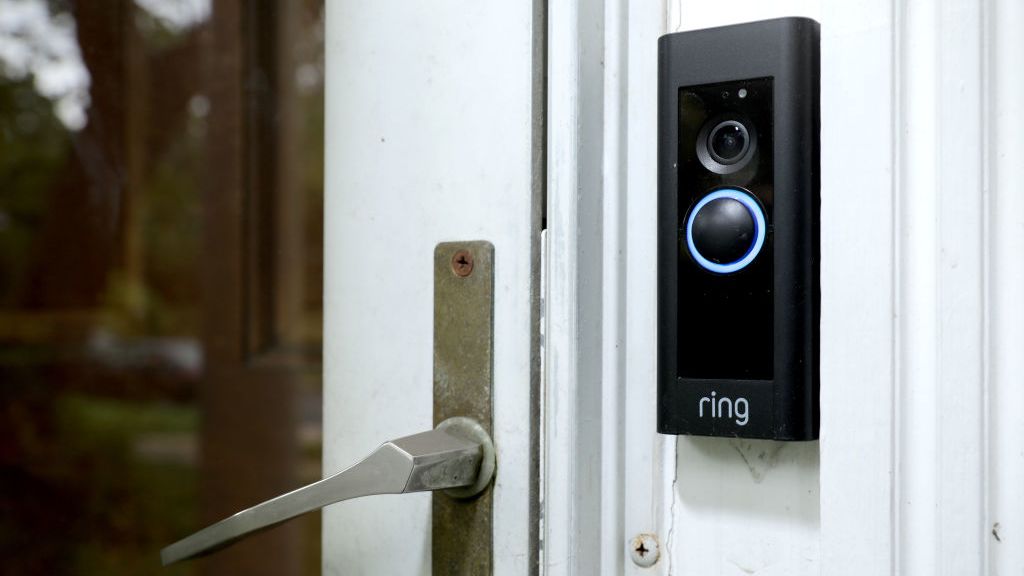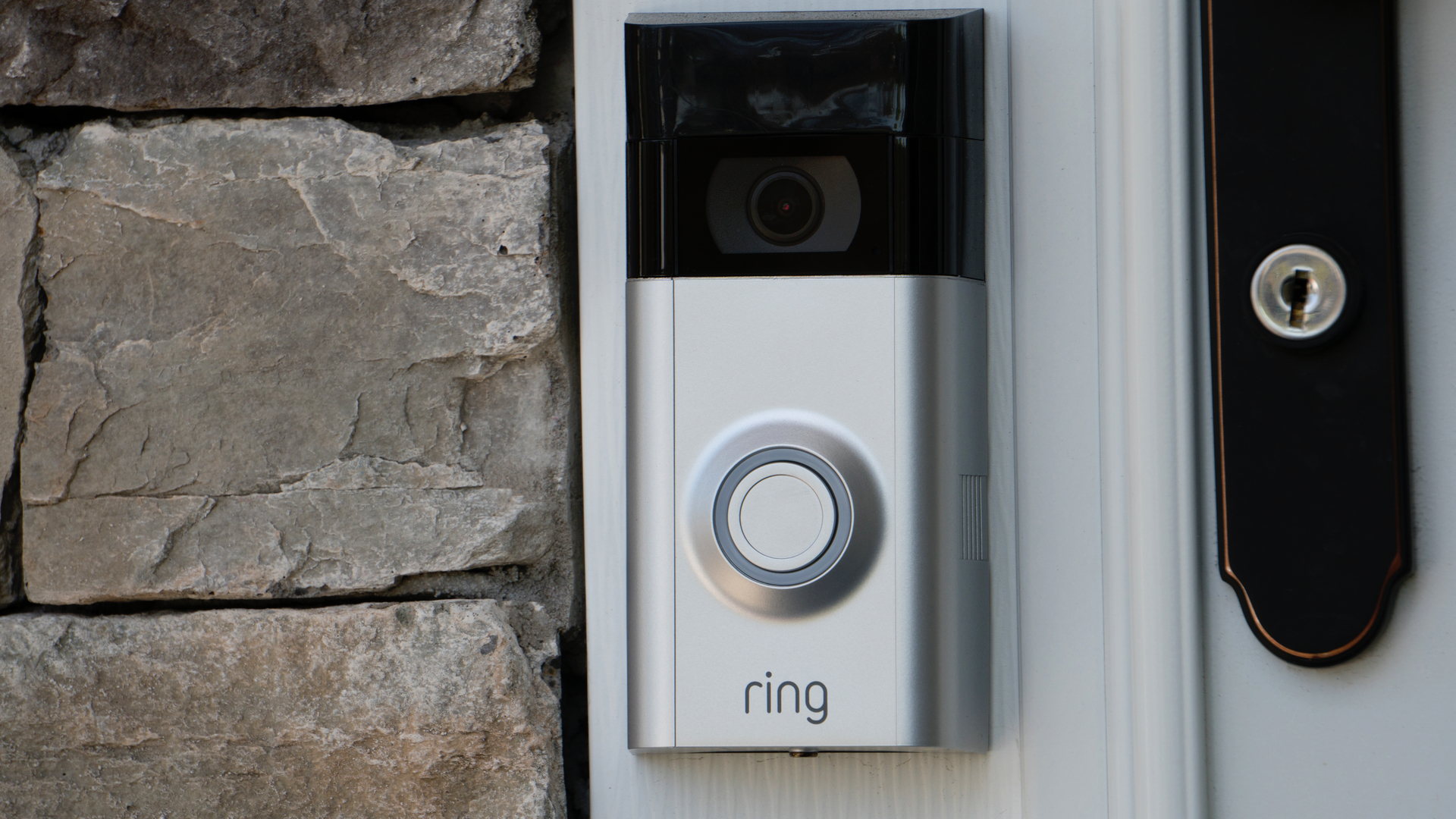Amazon gave police departments Ring footage without permission
The tech giant has done this 11 times this year


Amazon’s Ring doorbell unit has admitted to providing police forces with data without users' consent 11 times so far this year, according to a prominent US politician.
Democratic senator Edward Markey released the findings from his probe into Ring, which highlighted the close relationship between the company and law enforcement, according to a letter the senator received from the company.
The company said it provided the videos to law enforcement in response to emergency requests. It said that in each instance, Ring made a good-faith determination that there was an imminent danger of death or serious physical injury to a person requiring disclosure of information without delay.
"It’s simply untrue that Ring gives anyone unfettered access to customer data or video, as we have repeatedly made clear to our customers and others," a spokesperson for Amazon's Ring said in a statement. "The law authorises companies like Ring to provide information to government entities if the company believes that an emergency involving danger of death or serious physical injury to any person, such as a kidnapping or an attempted murder, requires disclosure without delay. Ring faithfully applies that legal standard."
The doorbell unit also revealed that its Neighbors Public Safety Service (NPSS), a platform that allows police and others to ask Ring owners for footage, currently has 2,161 law enforcement agencies and 455 fire departments enrolled. This represents a more than five-fold increase in law enforcement partnerships on the platform since November 2019.
“As my ongoing investigation into Amazon illustrates, it has become increasingly difficult for the public to move, assemble, and converse in public without being tracked and recorded,” said Markey. “We cannot accept this as inevitable in our country. Increasing law enforcement reliance on private surveillance creates a crisis of accountability, and I am particularly concerned that biometric surveillance could become central to the growing web of surveillance systems that Amazon and other powerful tech companies are responsible for.”
The senator has called on Congress to pass the Facial Recognition and Biometric Technology Moratorium Act to stop law enforcement from accessing sensitive information about citizens’ faces, voices, and bodies.
Get the ITPro daily newsletter
Sign up today and you will receive a free copy of our Future Focus 2025 report - the leading guidance on AI, cybersecurity and other IT challenges as per 700+ senior executives
Ring also refused to commit to not incorporating voice recognition technology in its products. It stated that only police and fire departments are on NPSS, despite the company’s commitment to actively recruit public health departments, animal services, and agencies that primarily address homelessness, drug addiction, and mental health onto Ring’s platform.
The doorbell unit failed to clarify the distance from which Ring products can capture audio recordings and refused to commit to eliminate Ring doorbells’ default setting of automatically recording audio, stated the senator. The company also refused to commit to make end-to-end encryption the default storage option for consumers.
"It takes a lot of nerve for Amazon's Ring to promise a sense of safety to the face of its customers only to go around their backs giving away their private footage to the police without consent," said Nuno Guerreiro de Sousa, a technologist from Privacy International. "Allowing police to skip due processes such as warrants is not making anyone safer, one the very contrary, it opens extremely dangerous precedents."
In 2019, over 30 civil rights organisations wrote an open letter that called on government officials to investigate Amazon Ring’s business practices and end its numerous police partnerships. The letter added that Amazon is able to vacuum up enormous amounts of data which is then used to bolster Amazon’s corporate interests, often at the expense of local businesses and smaller competitors.
“Amazon’s latest encroachment with the Ring-police partnerships exemplify the company’s willingness to do what it takes to expand their data empire,” the organisations said. “Once they have this data, there is nothing stopping them from using it for their own profit-driven purposes.”
Zach Marzouk is a former ITPro, CloudPro, and ChannelPro staff writer, covering topics like security, privacy, worker rights, and startups, primarily in the Asia Pacific and the US regions. Zach joined ITPro in 2017 where he was introduced to the world of B2B technology as a junior staff writer, before he returned to Argentina in 2018, working in communications and as a copywriter. In 2021, he made his way back to ITPro as a staff writer during the pandemic, before joining the world of freelance in 2022.
-
 Why are many men in tech blind to the gender divide?
Why are many men in tech blind to the gender divide?In-depth From bias to better recognition, male allies in tech must challenge the status quo to advance gender equality
By Keri Allan
-
 BenQ PD3226G monitor review
BenQ PD3226G monitor reviewReviews This 32-inch monitor aims to provide the best of all possible worlds – 4K resolution, 144Hz refresh rate and pro-class color accuracy – and it mostly succeeds
By Sasha Muller
-
 Hackers are turning Amazon S3 bucket encryption against customers in new ransomware campaign – and they’ve already claimed two victims
Hackers are turning Amazon S3 bucket encryption against customers in new ransomware campaign – and they’ve already claimed two victimsNews Attackers are using AWS’ server-side encryption to conduct ransomware attacks
By Solomon Klappholz
-
 Amazon confirms employee data compromised amid 2023 MOVEit breach claims – but the hacker behind the leak says a host of other big tech names are also implicated
Amazon confirms employee data compromised amid 2023 MOVEit breach claims – but the hacker behind the leak says a host of other big tech names are also implicatedNews Millions of records stolen during the 2023 MOVEit data breach have been leaked
By Solomon Klappholz
-
 Amazon's Ring agrees to $5.8m settlement over alleged use of its cameras to spy on female customers
Amazon's Ring agrees to $5.8m settlement over alleged use of its cameras to spy on female customersThe firm will also pay $25m for allegations Alexa stored child voice recordings indefinitely
By Rory Bathgate
-
 Five things to consider before choosing an MFA solution
Five things to consider before choosing an MFA solutionIn-depth Because we all should move on from using “password” as a password
By Rene Millman
-
 The IT Pro Podcast: Going passwordless
The IT Pro Podcast: Going passwordlessIT Pro Podcast Something you are, or something you have, could be more important than a password you know in the near future
By IT Pro
-
 Podcast transcript: Going passwordless
Podcast transcript: Going passwordlessIT Pro Podcast Read the full transcript for this episode of the IT Pro Podcast
By IT Pro
-
 UK police fails ethical tests with "unlawful" facial recognition deployments
UK police fails ethical tests with "unlawful" facial recognition deploymentsNews A University of Cambridge team audited UK police use of the tech and found frequent ethical and legal shortcomings
By Rory Bathgate
-
 Snapchat settles for $35 million in Illinois biometrics lawsuit
Snapchat settles for $35 million in Illinois biometrics lawsuitNews The social media giant had been accused of improperly collecting, storing facial geometry in violation of state legislation
By Rory Bathgate